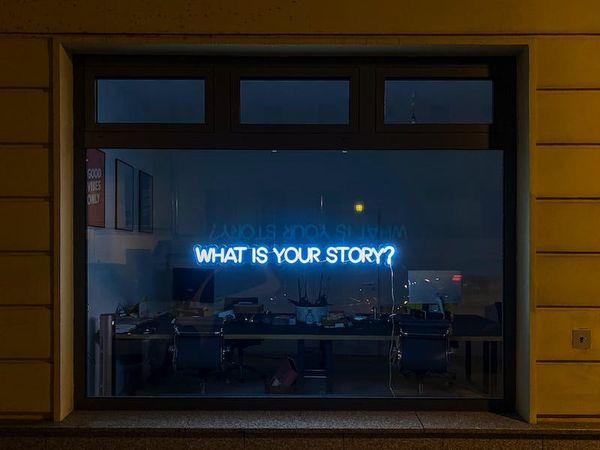How to finally be self-disciplined

You know that feeling when you know something is going to make your blood just boil, but you indulge in it anyway, getting some sort of sick pleasure out of being upset?
Me too.
The other day I was recommended a Jocko Willink video about discipline.
For me, the word “discipline” in itself rubs me the wrong way. It fills my head with entrepreneur-bros standing in front of Lambos lecturing me on how it’s all about the hustle . Second, I tend to stray away from the Goggins & Willink side of content, the hard-core pain-seeking masculinity just doesn’t resonate with me.
Regardless, I clicked it and watched.
One of two things can happen when you consume a piece of content that’s outside of your comfort zone. The first is that it opens up your worldview to other points of view you hadn’t previously considered. The second is that it further solidifies your own opinions, giving you a better idea of the counter-argument and strengthening your points. (I’ll leave you to figure out which happened to me.)
That aside, today, we’re talking about why our current view of discipline sucks and what you can do about it.
What is discipline?
Before we get into what’s right and wrong, we need to get our definitions straight.
What even is discipline?
Most commonly, I see it referred to as doing the things we know we should do, and not doing the things we shouldn’t do. Control over our impulses. Following through on our action items.
All of those are great, but how does one become disciplined?
Even before we get there, what does a disciplined person even look like?
From the outside looking in, we can point to a person like Jocko Willink or David Goggins and say they’re disciplined, but, again, how do we get there?
Take me, for example. I’ve been working out every day for the last 6 weeks. Does that make me a disciplined person? It sure doesn’t feel like it, since other areas of my life have been slacking. I play too many video games and spend too much time on social media. I don’t feel “disciplined.” I follow through on the habits I set, but I haven’t had any identity changes and it’s still really difficult.

What’s the line that makes someone disciplined? Is it a ratio of wins to losses? A feeling you have?
There have been many times in my life where I’ve strived to be more disciplined. However, it’s the wrong way to go abound it.
Here’s my thesis: discipline is an external observation.
Psychiatrist Dr. Kanojia compares this to flight, asking, “what is flight?”
Is it a wing? A feather? A muscle? It’s none of those things individually, but rather, a combination of those, and more, for the trait of flight to emerge. What you see and what’s needed to create that condition are two separate things.
Discipline isn’t just something you just attain, it takes multiple different inputs to create, from focus to environment, natural factors, and beyond.
But we’ll get into that a bit more later. For now, let’s take a look back at Jocko.
Discipline and willpower
Going back to the video, Jocko gives his advice on how to become disciplined.
“Get after it.”
He says to just do it. If you want to wake up, do it. If you want to be disciplined, just do it.
Okay, but how?
Here’s my issue with our current lens on discipline. We often see it in terms of pure willpower or brute strength.
We don’t work like that.
Our behaviors are dictated by emotions, not logic or ideas. The only way we can do what feels bad is through a temporary boost of willpower.
The issue with willpower
So Jocko’s telling you to just be disciplined. Someone who isn’t disciplined just gives into impulses, therefore that makes you un-disciplined. This leads you right back to your finite source of unsustainable willpower, until we eventually run it dry.
There’s a big issue here.
When you set a goal to just become disciplined, it’s just unreasonable. When you eventually run out of willpower, it leads you right into a negative mental space of feeling bad about not being a disciplined person.
“Focusing on failures of willpower leads to shame, both public and private, and holds back our curiosity from finding and enacting solutions that actually work.” – Brian Resnick
Our issue of self-control isn’t about knowing what to do.
It isn’t a battle of information, or reason, but emotion. Discipline gives us this idea that we need to beat our feelings into submission. However, there’s something else that we need to turn to.
It’s self-acceptance that’s the way forward, negotiating with our emotions, and meeting ourselves where we’re at.
The power of self-acceptance
The shortcut to sustained discipline is through self-acceptance.
You need to detach your behaviors from your identity. Just because you indulge, it doesn’t make you a bad person. You need to accept yourself for who you are and make sure to love yourself regardless of your behaviors or impulses.
When you see yourself as a bad person, it relieves you of your responsibility to change. It gives you this idea that you can’t change because that’s just who you are.
Once you remove your worth as a human being from your behaviors, then you can start moving forward.
Okay, great. But how?
It starts with looking nakedly at our emotions.
We need to look the emotional problem in the face and see it for what it truly is, without judgement. You want to accept this dark part of you, and dig into the negative emotions that you feel about it. It’s here to stay, and you can’t just keep it hidden under the rug pretending that everything is fine.
You have to work with it instead of fighting against it.
When you work through this self-acceptance, there’s no reason to do your compulsive behavior. You don’t have anything to make up for, and no reason to punish yourself.
How do you start cultivating this self-acceptance? I have all of the answers you need in last week’s newsletter right here .
Actually becoming more “disciplined”
So now what? Now that you have this different view of discipline, how do you move forward from here?
To his credit, Jocko does bring something up that we can use. He says that when you’re un-disciplined, you don’t understand the value of what it is you want. In behavioral economics, this is called present bias.
“The present bias refers to the tendency of people to give stronger weight to payoffs that are closer to the present time when considering trade-offs between two future moments” – Behavioral Economics
In terms of discipline, this happens when the payoff from taking action happens sooner and outweighs the ease of inaction. Taking actions for our future self is difficult because it doesn’t immediately benefit us.
Furthermore, it works negatively with costs. We’re more likely to take the desired action when the pain of not doing it outweighs the pain of doing it.
For Jocko, I’m assuming that the threat of inaction to his identity is a stronger pain than not working out. For me, I really don’t want to lose health on Habitica, so I’m writing the newsletter before the end of the day, despite not wanting to.
Another personal example: I wanted to start waking up earlier, so I bought a cheap, programmable coffee maker. My night-time self wants to wake up early, so before bed, I set it for 6:30. When my alarm goes off, I know there’s a pot of coffee on a hotplate that I need to go drink before it burns.
On paper, you may think your actions are worth it, but you may not know or deeply understand how it’s worth it. How do you shift that? The effective way is through experiences, though it takes a long time to gain these.
If you don’t have any personal experiences at the ready, then you can cultivate worth through reflection. Not only do you need to understand the actual costs, but feel the emotions behind them too. For example, smoking won’t just give you lung cancer, but it’ll stop you from walking your daughter down the aisle. Those emotions are painful, but the more you dig into them now, the easier it’ll be to take action.
Action items
- Get extreme clarity on the behavior you want to become disciplined with
- Let go of your current notion of what “discipline” is and focus on self-acceptance. Follow the action items here .
- Work on bringing tangible results to your present self, even if it’s as simple as a little shot of dopamine from ticking the box on your habit tracker. How can you make your desired actions more rewarding today?
- Experience the emotions of the cost of your actions. Reflect on how those impact your future self. Step into their shoes and dig into those emotions.
Thanks for reading!
Hey you. Thanks for reading to the bottom!
If you enjoyed this, there’s much more to come. I’d love to hear your feedback, either through a comment on Substack, or you can simply reply to this email.
I hope you have a wonderful day, and as always, I’ll work on creating a catchy phrase to end this newsletter with.
(Right after I’m done checking this off in Habitica.)



